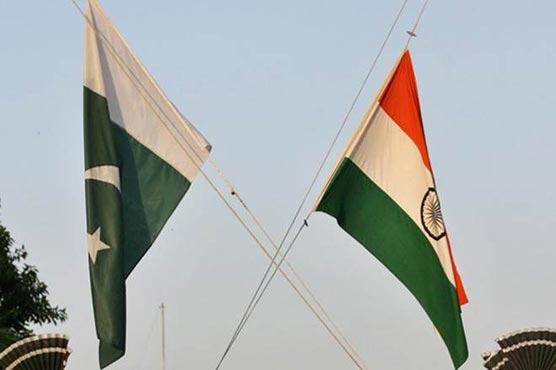An agreement between the Director Generals of Military Operations of India and Pakistan marked the beginning of yet another round of peace talks between the two countries after a long gap. The statements made by the national leadership during the recently concluded Islamabad Security Dialogue has led to divergent interpretations by different groups, albeit all hoping for better prospects of peace in the region. While it’s good to hope for better results, only time will tell the success or futility of the initiative as has been the case in the past
What could have brought the Indian leadership to the negotiation table when the BJP-led Modi government had for a long time avoided any negotiations with Pakistan?
Past experiences suggest that India has always accepted talks with Pakistan under two circumstances, inability to control internal divisive movements or under international pressure due to human rights violations. Internally, India has failed to control the indigenous freedom struggle in the Indian Illegally Occupied Jammu and Kashmir. Internationally, India is under pressure for continued human rights violations in IIOJ&K. Mishandling of COVID-19 by the Modi government, adverse economic conditions due to the pandemic and farmers’ protests against newly enacted laws are the other internal factors. Instability in the North Eastern states also seems to be on the rise. Border conflict with China in 2020 may also have resulted in the US asking India to avoid confrontation with Pakistan, as it would take Indian focus away from US’ endeavour of China containment.
Historically, there has been a discernible trend in the India-Pakistan dialogue process. Usually, India takes a hard stance and Pakistan continues to plead for dialogue. Whenever India shows flexibility, Pakistan rushes to grasp the opportunity. Pakistani eagerness for dialogue helps India negotiate on its own terms. As a result, India makes some gains and Pakistan loses in the long run. In 2003, after prolonged Indian refusal for dialogue, both the countries signed a ceasefire agreement. Taking advantage of the ceasefire, India completed the fencing along the Line of Control, otherwise an impossible undertaking. After completion of the fencing, the dialogue process between the two countries gradually fizzled out and India embarked upon unprecedented ceasefire violations, which continued till February 2021. During the ensuing period with no bilateral talks, India continued to work on building dams, in violation of the Indus Waters Treaty.
In the current dialogue process, India may have multiple aims to achieve. If the dialogue starts without revocation of Indian decisions of August 5, 2019, this may alienate Kashmiri leadership as well as population from Pakistan. Additionally, owing to the ongoing dialogue process, Pakistan would refrain from vociferously highlighting Indian atrocities in IIOJ&K, and India would refuse third party interference calling it a bilateral issue as well as the ongoing talks. This will provide India an opportunity to further suppress the Kashmiri people. Talks with Pakistan will also help India to project her compliance to the US desire for focusing on China containment and acquire military hardware and new technologies. It will also provide India an opportunity to handle internal crises such as COVID-19 and farmers’ movements with greater focus.
Like the past, India will endeavour to convince Pakistan on talking about terrorism, Afghan transit trade, bilateral trade, people-to-people contact, sports etc, pending the core issue to be discussed later, after creation of a suitable environment. While resumption of bilateral trade after her unilateral decision to stop it in the wake of February 2019 developments favours India, Afghan transit trade hurts Pakistan due to smuggling. Therefore, India while avoiding international criticism of its human rights violations in IIOJ&K, gains in economic terms and buys time to further suppress the people of Kashmir; Pakistan doesn’t seem to gain anything. India may also use this bonhomie to persuade Pakistan for release of Kulbhushan Jadhav or at least remittance of his death penalty.
It would, therefore, be wise for Pakistan to use prudence and not jump to catch this opportunity regardless of its cost. There is a need to work out our priorities for negotiating issues for lasting peace with India. After taking the Kashmiri leadership onboard, our foremost priority should be to discuss Kashmir too, after India agrees to rescind her August 5, 2019 decisions. This should be followed by other issues such as Siachen, Sir Creek, and Indian violations of the Indus Waters Treaty etc. There should not be any discussion on release/remittance of the death penalty for Kulbhushan Jadhav, killer of innocent Pakistanis through multiple acts of terrorism. Additionally, India must also stop working against Pakistan in FATF and discontinue her disinformation campaign. Pakistan must also insist on continuation of dialogue to avoid situations like the past where India unilaterally walked away from the dialogue process on flimsy grounds
While there is no official acknowledgement, there are reports of backchannel diplomacy through intelligence agencies. This can only be fruitful if the mindset of the Indian agencies has changed; which unfortunately is not corroborated by the obvious indicators. In 2005, while speaking at the Hindustan Times Leadership Conclave, Omar Abdullah, ex-Chief Minister of IIOJ&K had confessed that end to turbulence in Jammu and Kashmir was not in the interest of (Indian) intelligence and law enforcement agencies, as their funding and expansion depended on continuation of the conflict.
Pakistan-India relations are complex and not likely to be resolved anytime soon, especially while Hindutva hardliners are ruling the latter. It is, therefore, important to be cautious as lessons from such engagements in the past underscore the need to avoid hasty decision-making to create history.
Air Marshal Ashfaque Arain is Director Strategic Stability and Defence at Centre for Aerospace and Security Studies (CASS). The article was first published in THE NATION. He can be reached at cass.thinkers@gmail.com




